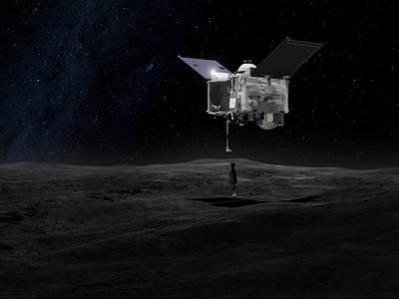NASA's OSIRIS-REx spacecraft is adjusting its course to get closer to Earth, according to mission officials. OSIRIS-REx, the first US mission to collect a sample from an asteroid, will return to Earth on September 24 with material from asteroid Bennu.
Travelling at about or about 35,000 kilometres per hour, the spacecraft is currently 38.6 million kilometres from Earth.

Mission officials said that on July 26, OSIRIS-REx fired its engines for about 63 seconds to slightly thrust itself onto a course closer to Earth. The trajectory correction manoeuvre is the final adjustment needed to set up OSIRIS-REx to return to Earth.
"Preliminary tracking data indicates OSIRIS-REx changed its velocity, which includes speed and direction, by 1.3 miles, or 2 kilometres, per hour. It's a tiny but critical shift; without course adjustments like this one the spacecraft would not get close enough to Earth on September 24 to drop off its sample of asteroid Bennu," they said in a statement.
Two more manoeuvres, on September 10 and 17, will target the precise point in Earth's atmosphere where the spacecraft's sample-return capsule must enter to land on target at the Department of Defense's Utah Test and Training Range near Salt Lake City, the officials said.
The pristine material from Bennu -- rocks and dust collected from the asteroid's surface in 2020 -- will offer generations of scientists a window into the time when the Sun and planets were forming about 4.5 billion years ago.
![Atlas V rocket takes flight in 2016, carrying NASA's OSIRIS-REx spacecraft to sample an asteroid. [Representational image] nasa, OSIRIS-REx spacecraft,](https://data1.ibtimes.co.in/en/full/634942/nasa-osiris-rex-spacecraft.jpg?h=450&l=50&t=40)
Meanwhile, the OSIRIS-REx team members have been practising collecting soil samples on the Department of Defense's Utah Test and Training Range. On July 18-20, the team rehearsed retrieving a mock sample capsule at the location where the real one will land.
(With inputs from IANS)

















